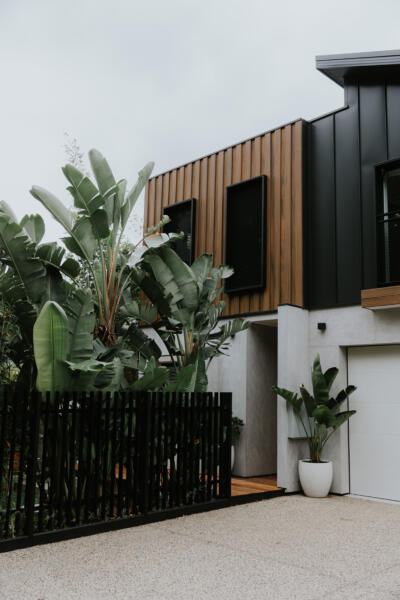Deciding between renovating an existing property and building a new home in New South Wales (NSW) is a significant choice that we, as buyer’s agents, see many homeowners face. Both options come with their own set of advantages and disadvantages, and understanding these factors can help individuals make an informed decision tailored to their specific needs and circumstances. In this blog, we’ll explore the pros and cons of each option for homeowners in NSW.

Renovating a Property:
Pros:
- Preservation of Character: Renovating allows homeowners to retain the character and charm of an older property, particularly if it has historical significance or unique architectural features. This can add to the sense of heritage and nostalgia, which some homeowners value greatly.
- Cost-Effective: In many cases, renovating can be more cost-effective than building a new home from scratch. By updating existing structures and systems, homeowners can avoid the high costs associated with land acquisition and new construction.
- Faster Completion: Renovations often have shorter timelines compared to building new homes. With proper planning and execution, homeowners can enjoy their updated space relatively quickly, without the lengthy wait times often associated with new construction.
- Environmental Considerations: Renovating an existing property can be more environmentally friendly than building a new home, as it minimises the need for additional materials and reduces construction-related waste.
Cons:
- Hidden Costs: Renovation projects can sometimes uncover unexpected issues, such as structural damage or outdated wiring, which can significantly increase costs. Budgeting for contingencies is essential to avoid financial strain.
- Limited Scope: Renovations are constrained by the existing layout and structure of the property, which may limit design possibilities. Homeowners may need to compromise on certain features or amenities due to space constraints or structural limitations.
- Regulatory Hurdles: Renovations may be subject to strict regulations and zoning requirements, particularly if the property is in a heritage-listed area or has significant historical value. Obtaining permits and approvals can add time and complexity to the renovation process.
Building a New Property:
Pros:
- Customisation: Building a new home offers unparalleled flexibility in design and customisation. Homeowners can work with architects and builders to create a space that perfectly suits their lifestyle, preferences, and needs, without being limited by existing structures.
- Energy Efficiency: New homes can be built to the latest energy efficiency standards, incorporating features such as insulation, double-glazed windows, and energy-efficient appliances. This can result in lower utility bills and reduced environmental impact over the long term.
- Modern Amenities: Building a new home allows homeowners to integrate modern amenities and technologies, such as smart home systems, home theatres, and energy-efficient heating and cooling systems, which may not be feasible or cost-effective to retrofit into an existing property.
- Long-Term Investment: A newly constructed home typically requires less maintenance and upkeep compared to an older property, reducing ongoing expenses and potentially increasing the property’s resale value over time.
Cons:
- Higher Costs: Building a new home can be considerably more expensive than renovating, due to the costs associated with land acquisition, construction materials, labour, and permits. It’s essential for homeowners to carefully budget and plan to avoid financial strain.
- Extended Timeline: Constructing a new home from scratch can be a lengthy process, involving multiple stages such as design, permitting, site preparation, and construction. Delays due to weather, labour shortages, or supply chain disruptions can further prolong the timeline.
- Lack of Character: Unlike renovated properties, new homes may lack the character and charm of older buildings. Some homeowners may prefer the unique architectural features and historical significance associated with older properties.
- Environmental Impact: The construction of new homes can have a significant environmental impact, including habitat destruction, resource depletion, and carbon emissions. While energy-efficient features can mitigate some of these concerns, they may not fully offset the environmental footprint of new construction.
The decision to renovate or build a new home in NSW depends on various factors, including budget, timeline, customisation preferences, and environmental considerations. Both options offer distinct advantages and disadvantages, and homeowners should carefully weigh these factors before making a decision. Consulting with architects, builders, and real estate professionals can provide valuable insights and guidance to help homeowners navigate the process and achieve their desired outcome. Ultimately, whether renovating or building new, the goal is to create a comfortable, functional, and sustainable living space that meets the needs of the homeowner and enhances their quality of life.
Considering purchasing a property to either renovate or rebuild? Read our FAQs for Property Buyers here.
Interested to know how a buyer’s agent may be able to help if your next property purchase? Or simply have questions about the Central Coast property market? Our team would love to chat.
